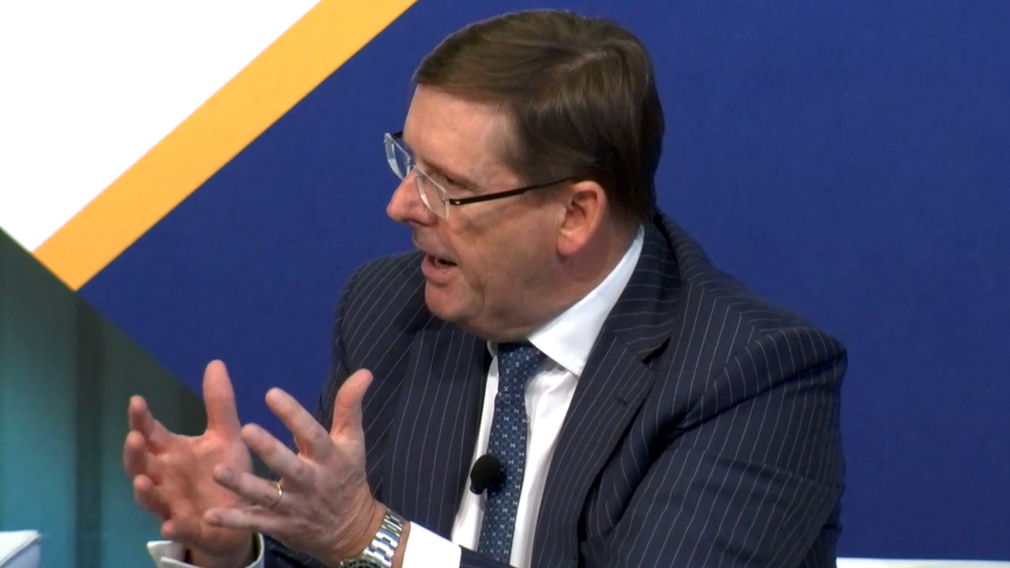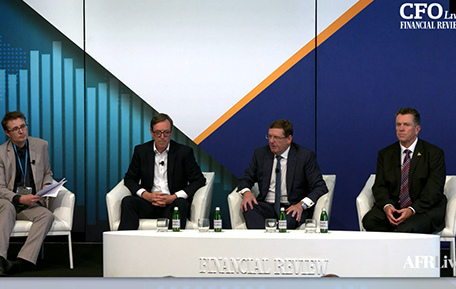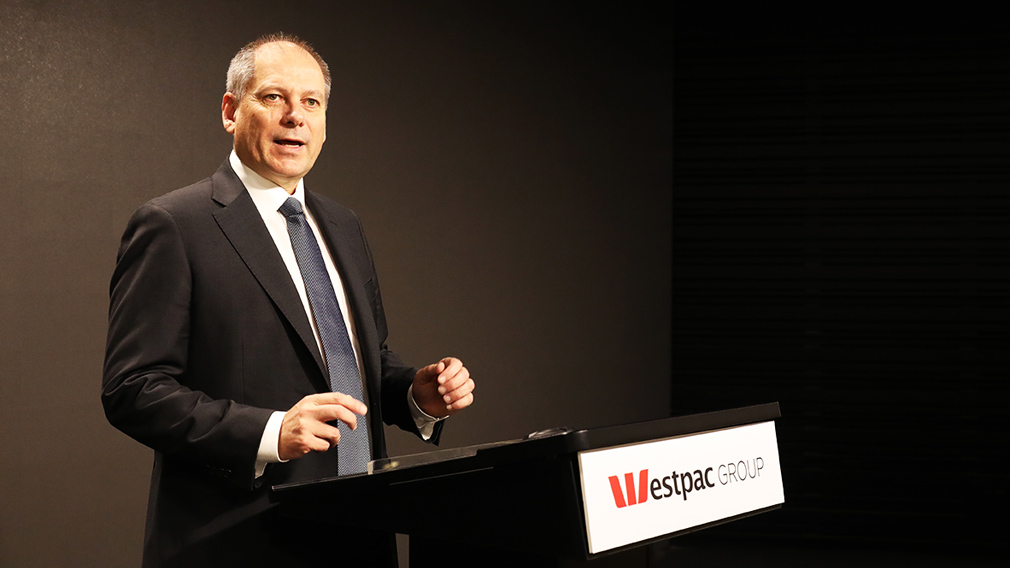Skilled migrants key to easing tech crunch: Rowland

Westpac CFO Michael Rowland at the AFR’s CFO Live Summit in Sydney, captured here on the online stream.
Westpac chief financial officer Michael Rowland says reopening Australia to foreign workers is critical to easing the skills crunch in technology and transformation roles, claiming traditional labour pools were running dry after almost two years of the international border being closed.
Speaking alongside other business leaders at The Australian Financial Review's CFO Live Summit yesterday, Mr Rowland said the bank often recruited from the big accounting and consulting firms “but they’ve pretty much got to the bottom because they tend to bring their folks from overseas and that’s stopped”.
“So, I think that will make a big difference when skilled migration is allowed to re-enter the country. We’re starting to see that as a real problem at the moment,” he said.
Mr Rowland said two areas of the labour market were particularly tight: finance transformation experts who “take long and detailed process and digitise and automate them”, plus people with “broader digital skills across the value chain”. He said the bank was focused on retaining talent through “monetary awards” but also training and career opportunities, plus looking at upping intake via its graduate recruitment program and partnering more.
“But I think that’s going to be the big bottleneck going forward – getting those what I call finance transformation skills, I think they’re really hard to find in the market at the moment,” he said.
Suncorp Group CFO Jeremy Robson agreed, saying “without doubt it is a tighter market for some of these sorts of skill sets".
The comments come after the federal government last week paused the border reopening following the emergence of the Omicron COVID variant, forcing international skilled workers and students, as well as humanitarian, working holiday makers and provisional family visa holders, to wait until at least December 15.
Mr Rowland said the crunch on labour supply was boosting wages inflation for “specialist skills”, but “not so much across the board”. Mr Robson added “there is certainly elements of inflation in there which is sort of difficult to correlate with where average weekly earnings growth is across the country”.

From left to right, the AFR’s Paul Smith, Suncorp’s Jeremy Robson, Westpac’s Michael Rowland and Oracle’s Steven Skinner.
Last week’s national accounts revealed wages growth “almost stalled” in the September quarter, according to Westpac’s economists, with total wage incomes lifting just 0.3 per cent due to weak employment growth amid lockdowns in New South Wales and Victoria. Still, according to the ABS’s separate quarterly wage price index, private sector wages lifted to an annual pace of 2.4 per cent, the fastest since early 2019, following isolated pockets of strong demand in areas including construction, and “professional, scientific and technical”.
Given higher than expected inflation in Australia and other nations, wages are key to the outlook for when central banks will start to raise official interest rates.
The economic recovery and easing COVID restrictions is also forcing employers to navigate how to juggle the rise of working from home during the pandemic with the resumption of office-based work.
Mr Rowland said Westpac’s surveys showed most staff don’t want to return to the office full time and the “hybrid” model of combining WFH with the office was allowing the bank to reduce its footprint in CBDs, already consolidating multiple locations in several cities and cutting floor space.
But he said while collaboration tools like Microsoft Teams were constantly improving and flexibility was important, so was returning to the office, noting its plan to return to corporate sites from February 1, with teams and leaders deciding the finer details of how many and which days.
“It is interesting that when we look back at what’s happened through COVID, people have coped very well at home, but generally they’re people that have been part of an established team,” he said.
“There are new people coming on all the time and we believe that it’s appropriate for them to come into the office at some point to collaborate, for development etc..”
Mr Robson expressed similar sentiments, adding companies had to “give people a reason to come into the office”.
“I think about people in my team in Sydney someone might live up on the northern beaches, it takes an hour each way on the bus to get into the office – we’ve got to give them a reason to spend that time getting into the office," he said.
“It’s got to be around collaboration, it’s got to be around things like development. We have new team members, graduates come into the team, they’ve got to have some of that face to face interaction to see how the senior leaders operate and to work on their development. So, I think it’s going to be an important part of the future, but it will just be used differently.”
A month on from the bank’s full-year results, Mr Rowland the “fix, simplify, perform” agenda was progressing and his finance team was driving “simplify” by asking teams what they needed to do to simplify businesses and then come back with targets to hit, yielding positive results.
“It’s amazing what you can do within the context of the multiple systems and legacy issues that you’ve got and that’s how we’ve done it and we think we can make significant inroads this year,” he said.


